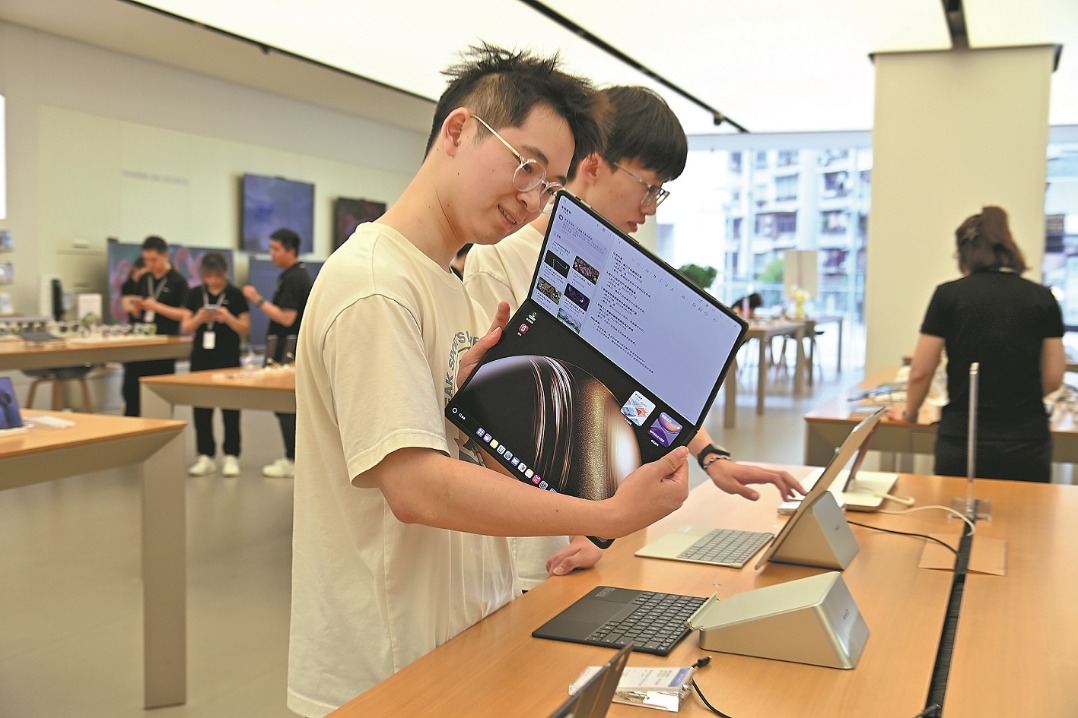Drugmakers increasingly looking abroad


The drug is a novel treatment for chemotherapy-induced neutropenia-a common side effect of many forms of chemotherapy characterized by low levels of neutrophils, a type of white blood cell that fights infections.
A record 271 cross-border licensing partnerships were concluded last year between Chinese pharmaceutical companies and multinational companies, including Roche, Bayer, AbbVie and Pfizer, data from ChinaBio showed. ChinaBio is a Shanghai-based consulting and advisory firm focusing on the domestic life sciences industry.
The figure represented an increase of nearly 50 percent from 2019 and more than 300 percent from 2015.
The largest out-licensing deal in 2020 was I-Mab Biopharma's partnership with global drugmaker AbbVie Inc for the rights to lemzoparlimab-also known as TJC4-which is an anti-CD47 monoclonal antibody discovered by the Shanghai-based company to treat multiple forms of cancer.
Anti-CD47 therapies are one of the most competitive branches in cancer drug development. The therapies target a signal that allows cancer cells to avoid being attacked by the patient's own immune system.
According to the announcement in September 2020, the deal was estimated to be worth more than $2.9 billion.
In January this year, BeiGene Ltd and Novartis entered a collaboration and licensing agreement granting Novartis rights to develop, manufacture and commercialize anti-PD-1 antibody tislelizumab in North America, Europe and Japan.
BeiGene will receive $2.2 billion from Novartis for the arrangement. The upfront cash payment will be $650 million and the company is eligible to receive up to $1.3 billion on reaching regulatory milestones, and $250 million on achieving sales milestones, in addition to royalties on future sales of tislelizumab in licensed territories.
Although most of the licensing deals between Chinese pharmaceutical companies and their foreign counterparts are in-licensing, the out-licensing deals are seeing quick growth because Chinese biotech and biopharmaceutical companies now eye not only the domestic market, but also the global market, industry experts said.
China's biopharmaceutical industry has made enough breakthroughs to be able to conduct research and development for cutting-edge drugs. Also, it needs broader space than merely the domestic market to grow bigger, they said.
Already the second-largest pharmaceutical market in the world, China's prescription drug market totaled 1.2 trillion yuan in 2020 sales, which, if excluding patent drugs of traditional Chinese medicine and generics, was only about 70 billion yuan. That was much smaller than the US market's $900 billion, said Feng Ting, vice-president of Lilly Asia Ventures.
"The future of Chinese innovative pharmaceutical companies relies on successful global operations, because that is the only way for Chinese pharmaceutical companies to grow into international pharmaceutical giants," said Wu Xiaobin, president of BeiGene.
Tislelizumab is the first drug from BeiGene's immuno-oncology biologics program being developed globally for the treatment of a broad array of both solid tumor and hematologic cancers.
The company has established a strong global product R&D and commercialization system, as well as advanced facilities and manufacturing techniques for production to support the launch and commercialization of more innovative drugs in overseas markets.
In November 2019, its Brukinsa (zanubrutinib) was approved by the USFDA to treat mantle cell lymphoma in adult patients, marking the first cancer treatment developed in China to be approved for the US market.
As of March, clinical trials conducted or planned by the company totaled more than 100, including 25 Phase-3 or potentially registration-enabling clinical trials.
Amy Tang, a partner at Qiming Venture Partners, said that before 2015 there were almost no out-licensing deals between Chinese and foreign pharmaceutical companies.
"The out-licensing deals started to grow gradually since 2015 after China adopted a series of drug regulatory reforms to spur innovation and attract Chinese talent living overseas," Tang said, adding that 2020 saw the largest number of out-licensing cases so far.
China's innovative drug industry is undergoing a golden age of development because China has made great progress in encouraging the development of innovative drugs, especially in terms of attracting and cultivating talent and improving the regulatory environment, she said.
"It used to take an average of three years for an innovative drug to get investigational new drug approval in the past. Now the time span has narrowed to about three months,"Tang added.





































